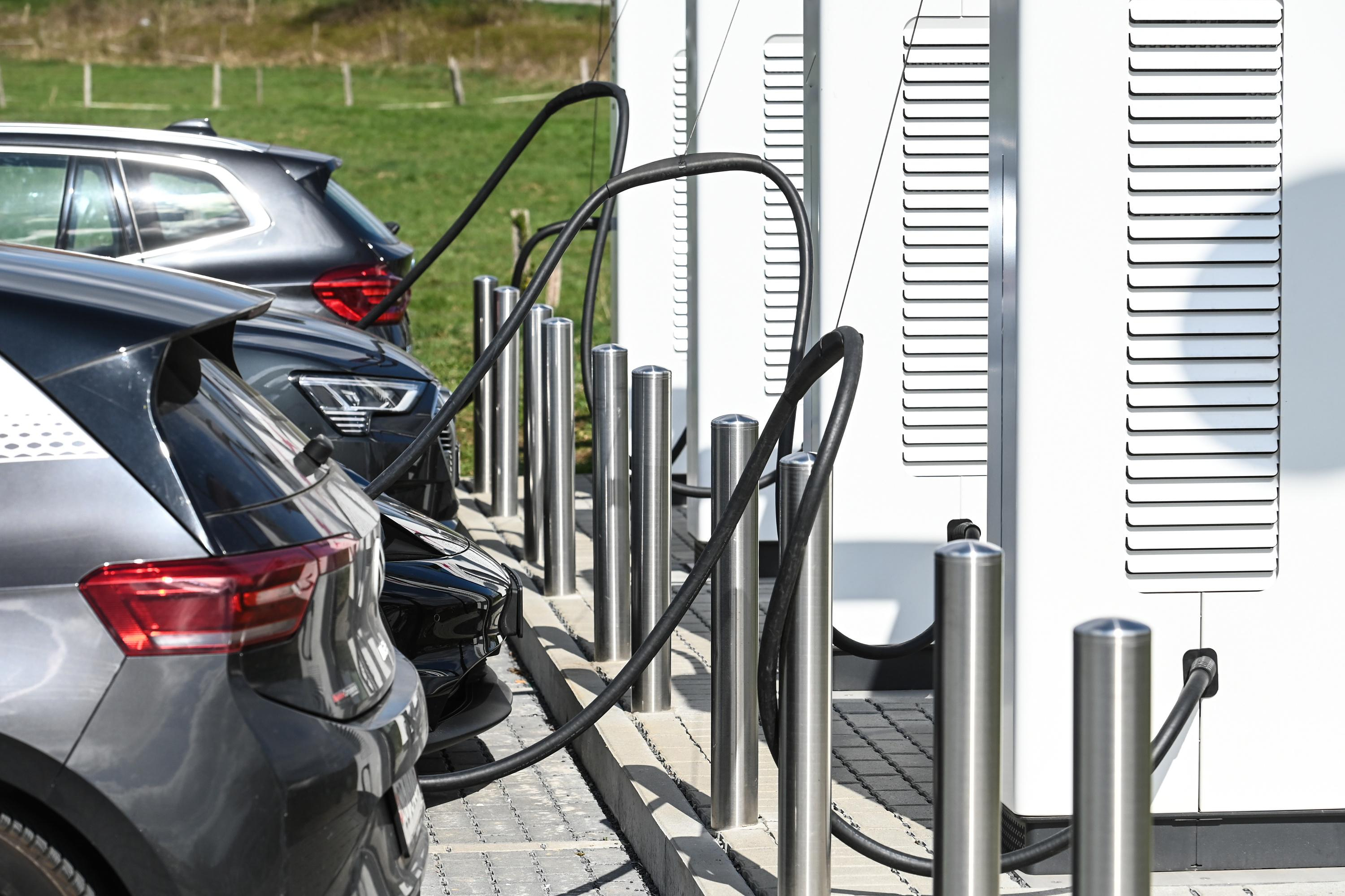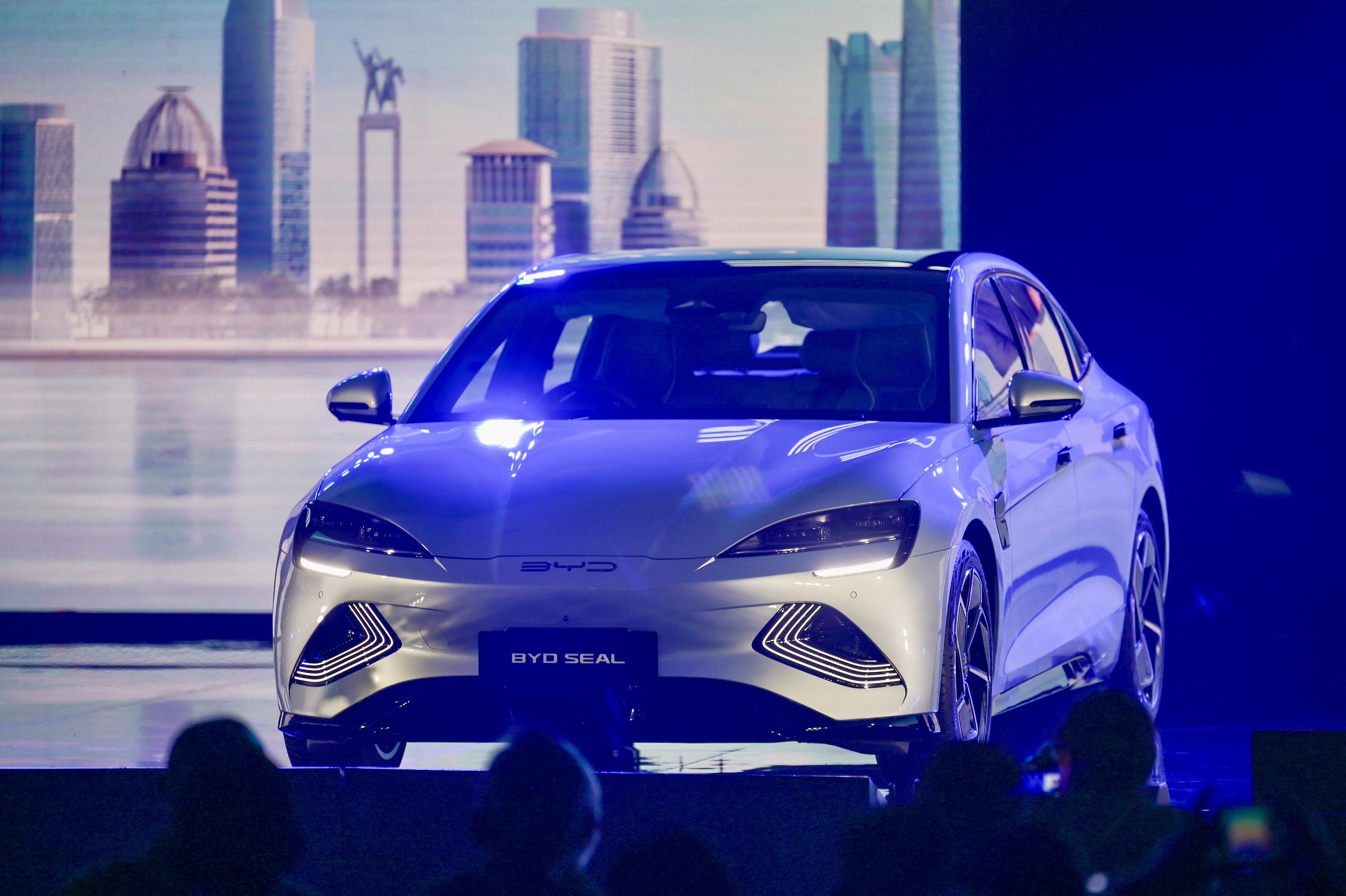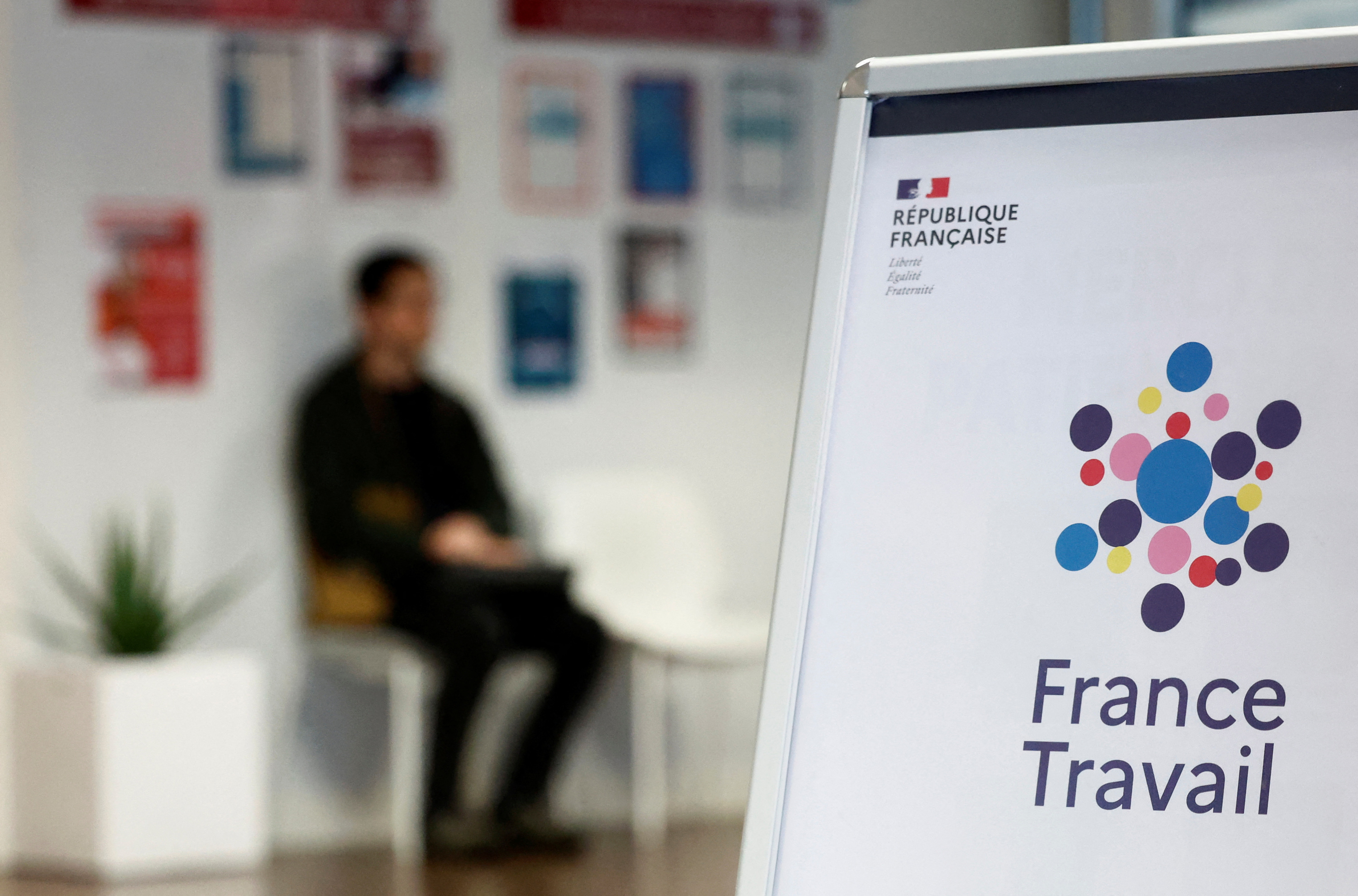In the Kaufhof on Düsseldorf's Königsallee, a salesperson is waiting for customers on the ground floor. "I don't think it will be closed here," says the man in his mid-fifties. The similarly large and not particularly far away Karstadt on Schadowstrasse must also remain in existence. "Otherwise there is something missing in the city so that people can feel comfortable."
But Galeria Karstadt Kaufhof (GKK) is under massive pressure. At the end of October, the GmbH based in Essen applied for a protective shield procedure - for the second time since 2020. According to information from Galeria boss Miguel Müllenbach, the branch network of 131 department stores is to be thinned out by at least a third. The background is losses in the Corona crisis, increasing competition from online retailers and now also rising energy prices.
A company spokesman said on request which houses could be closed should be known in January after talks with the landlords. "The aim is to create a structure that is viable on its own." This is linked "with the promise of further very high investments by the owner", the Signa Group of the Austrian René Benko. In this situation, there is a glimmer of hope for the approximately 17,000 employees. The Detmold entrepreneur Markus Schön would like to take over several smaller department stores. "In NRW we are interested in the Aachen, Düren, Euskirchen, Neuss, Leverkusen, Paderborn and Siegen locations," said the CEO of the online retailer buero.de WELT AM SONNTAG. He had already informed the provisional trustee of GKK, Arndt Geiwitz, that detailed discussions should be held soon. Schön's plan is to continue the stores and the existing range, supplemented by office and school supplies.
A few years ago, 48-year-old Lipper took over the online business founded by his father and converted it into an AG. Schön now wants to step up the stationary retail trade and recently bought three retailers in Hesse. The entrepreneur with a good 200 employees in his group would also like to take over the employees from GKK. "Basically, the employees are the greatest treasure of the branches." Schön would like to stay away from big stores like in Düsseldorf, Cologne and Dortmund. "We are looking for locations in smaller towns with an interesting catchment area." The entrepreneur, who also operates an asset management company, would like to operate up to 47 branches nationwide. He has no interest in the real estate, nor in the traditional names Galeria, Kaufhof or Karstadt. "Even if we were given the name in the event of a bid, we would change our name." However, the department stores should not continue to work under the name buero.de, says Schön. On the other hand, it is important to expand the online presence.
Gerrit Heinemann, professor and trade expert at the Niederrhein University of Applied Sciences, viewed the new prospect's venture with skepticism. "He has no experience in the field of brick-and-mortar retail, let alone department stores." Managing them is particularly challenging and requires a large investment of capital.
"If Mr. Schön wants to take over 47 locations with an estimated turnover of around 500 million euros, it's mainly the problem branches that have fared particularly badly." Heinemann refers to a recent study by the consulting firm PwC, according to which the gross annual turnover of German department stores In the years 2003 to 2018 alone - i.e. even before the pandemic - almost halved from more than ten billion euros to around 5.5 billion euros, while sales in the entire German retail trade have risen continuously, mainly due to strong online trade. And during the pandemic, there was another halving to around 2.7 billion euros. "Customers voted with their feet, department stores are no longer the footfall generators they used to be," says Heinemann. An average Aldi branch now generates about twice as much footfall as a traditional department store.
Heinemann describes the former Kaufhof branch on Berliner Allee in Düsseldorf as a successful rededication. The complex now houses a high-quality Edeka with a restaurant, a hotel, offices and parking spaces. "With such a concept, however, the owners of the properties have to be satisfied with significantly lower rents than before." That would also be the case if hardware stores and furniture stores could be brought back from the periphery to new shopping centers in the cities.
The Düsseldorf real estate service provider Wulff Aengevelt sees it similarly. Classic department stores such as Galeria and C
However, trade expert Heinemann is pessimistic for the smaller houses. "Of the 31 locations in NRW, maybe ten will survive in the long term, especially in the big cities like Dortmund, Düsseldorf and Cologne." Also new luxury temples like the "Kaufhaus des Westens" planned by René Benko in the former Carsch-Haus between Kö-Kaufhof and old town, the professor does not predict a great future. "Even luxury department stores make the majority of their sales with items in the middle price segment." However, since the Carsch-Haus is right next to the department store and the buildings are connected underground, both are more like a unit. "In the end, only the department store on Königsallee will be able to survive in Düsseldorf."

 Germany: the trial of an AfD leader, accused of chanting a Nazi slogan, resumes this Tuesday
Germany: the trial of an AfD leader, accused of chanting a Nazi slogan, resumes this Tuesday New York: at Columbia University, the anti-Semitic drift of pro-Palestinian demonstrations
New York: at Columbia University, the anti-Semitic drift of pro-Palestinian demonstrations What is Akila, the mission in which the Charles de Gaulle is participating under NATO command?
What is Akila, the mission in which the Charles de Gaulle is participating under NATO command? Lawyer, banker, teacher: who are the 12 members of the jury in Donald Trump's trial?
Lawyer, banker, teacher: who are the 12 members of the jury in Donald Trump's trial? What High Blood Pressure Does to Your Body (And Why It Should Be Treated)
What High Blood Pressure Does to Your Body (And Why It Should Be Treated) Vaccination in France has progressed in 2023, rejoices Public Health France
Vaccination in France has progressed in 2023, rejoices Public Health France Food additives suspected of promoting cardiovascular diseases
Food additives suspected of promoting cardiovascular diseases “Even morphine doesn’t work”: Léane, 17, victim of the adverse effects of an antibiotic
“Even morphine doesn’t work”: Léane, 17, victim of the adverse effects of an antibiotic Orthodox bishop stabbed in Sydney: Elon Musk opposes Australian injunction to remove videos on X
Orthodox bishop stabbed in Sydney: Elon Musk opposes Australian injunction to remove videos on X One in three facial sunscreens does not protect enough, warns L'Ufc-Que Choisir
One in three facial sunscreens does not protect enough, warns L'Ufc-Que Choisir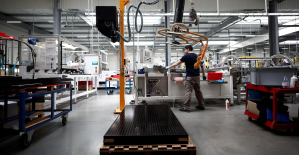 What will become of the 81 employees of Systovi, a French manufacturer of solar panels victim of “Chinese dumping”?
What will become of the 81 employees of Systovi, a French manufacturer of solar panels victim of “Chinese dumping”? “I could lose up to 5,000 euros per month”: influencers are alarmed by a possible ban on TikTok in the United States
“I could lose up to 5,000 euros per month”: influencers are alarmed by a possible ban on TikTok in the United States Dance, Audrey Hepburn’s secret dream
Dance, Audrey Hepburn’s secret dream The series adaptation of One Hundred Years of Solitude promises to be faithful to the novel by Gabriel Garcia Marquez
The series adaptation of One Hundred Years of Solitude promises to be faithful to the novel by Gabriel Garcia Marquez Racism in France: comedian Ahmed Sylla apologizes for “having minimized this problem”
Racism in France: comedian Ahmed Sylla apologizes for “having minimized this problem”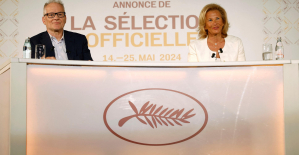 Mohammad Rasoulof and Michel Hazanavicius in competition at the Cannes Film Festival
Mohammad Rasoulof and Michel Hazanavicius in competition at the Cannes Film Festival Skoda Kodiaq 2024: a 'beast' plug-in hybrid SUV
Skoda Kodiaq 2024: a 'beast' plug-in hybrid SUV Tesla launches a new Model Y with 600 km of autonomy at a "more accessible price"
Tesla launches a new Model Y with 600 km of autonomy at a "more accessible price" The 10 best-selling cars in March 2024 in Spain: sales fall due to Easter
The 10 best-selling cars in March 2024 in Spain: sales fall due to Easter A private jet company buys more than 100 flying cars
A private jet company buys more than 100 flying cars This is how housing prices have changed in Spain in the last decade
This is how housing prices have changed in Spain in the last decade The home mortgage firm drops 10% in January and interest soars to 3.46%
The home mortgage firm drops 10% in January and interest soars to 3.46% The jewel of the Rocío de Nagüeles urbanization: a dream villa in Marbella
The jewel of the Rocío de Nagüeles urbanization: a dream villa in Marbella Rental prices grow by 7.3% in February: where does it go up and where does it go down?
Rental prices grow by 7.3% in February: where does it go up and where does it go down? Europeans: “All those who claim that we don’t need Europe are liars”, criticizes Bayrou
Europeans: “All those who claim that we don’t need Europe are liars”, criticizes Bayrou With the promise of a “real burst of authority”, Gabriel Attal provokes the ire of the opposition
With the promise of a “real burst of authority”, Gabriel Attal provokes the ire of the opposition Europeans: the schedule of debates to follow between now and June 9
Europeans: the schedule of debates to follow between now and June 9 Europeans: “In France, there is a left and there is a right,” assures Bellamy
Europeans: “In France, there is a left and there is a right,” assures Bellamy These French cities that will boycott the World Cup in Qatar
These French cities that will boycott the World Cup in Qatar Serie A: Bologna surprises AS Rome in the race for the C1
Serie A: Bologna surprises AS Rome in the race for the C1 Serie A: Marcus Thuram king of Italy, end of the debate for the position of number 9 with the Blues?
Serie A: Marcus Thuram king of Italy, end of the debate for the position of number 9 with the Blues? Milan AC-Inter Milan: Thuram and Pavard impeccable, Hernandez helpless… The tops and flops of the derby
Milan AC-Inter Milan: Thuram and Pavard impeccable, Hernandez helpless… The tops and flops of the derby Ligue 2: Auxerre leader, Bordeaux in crisis, play-offs... 5 questions about an exciting end of the season
Ligue 2: Auxerre leader, Bordeaux in crisis, play-offs... 5 questions about an exciting end of the season




